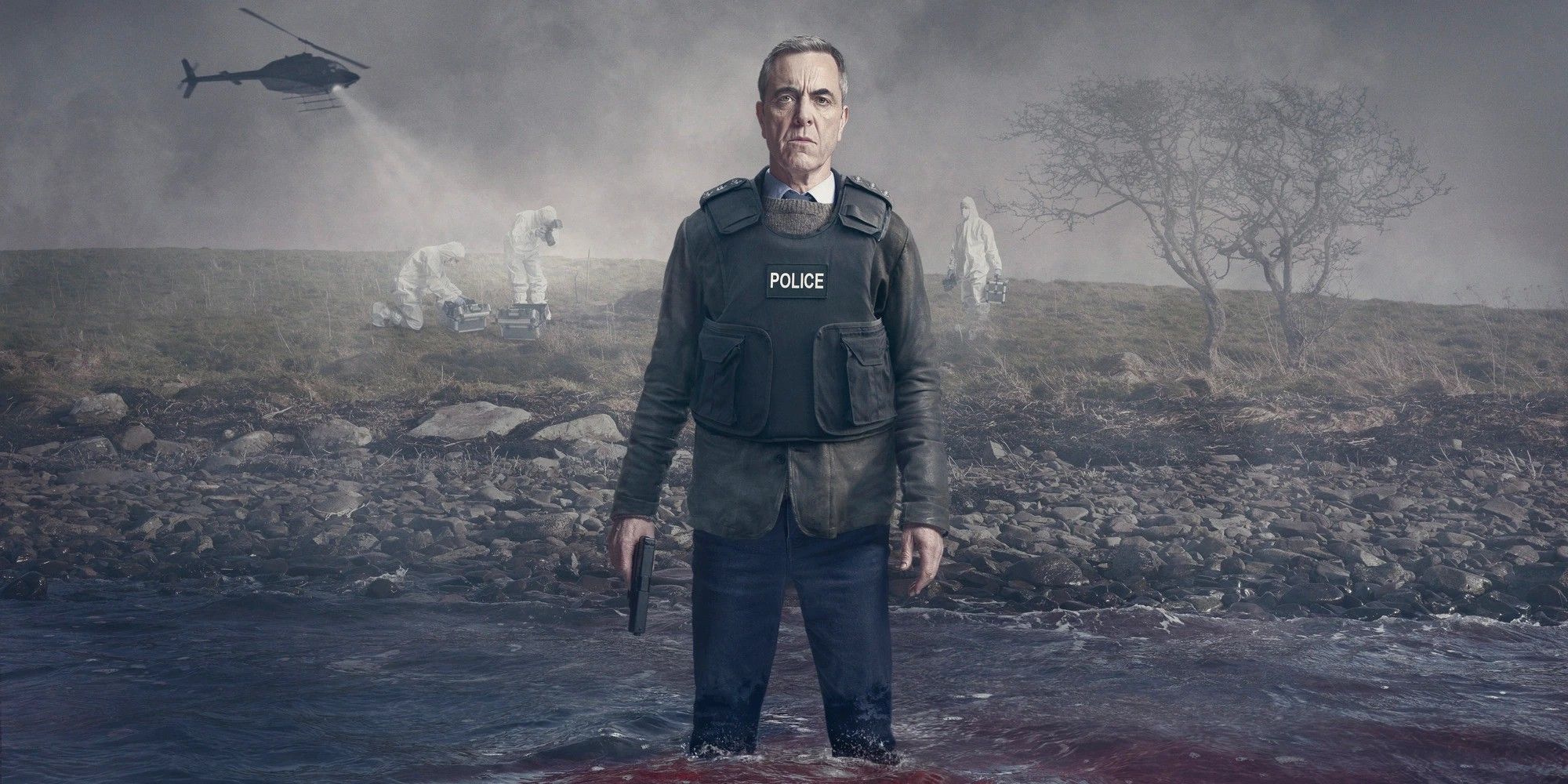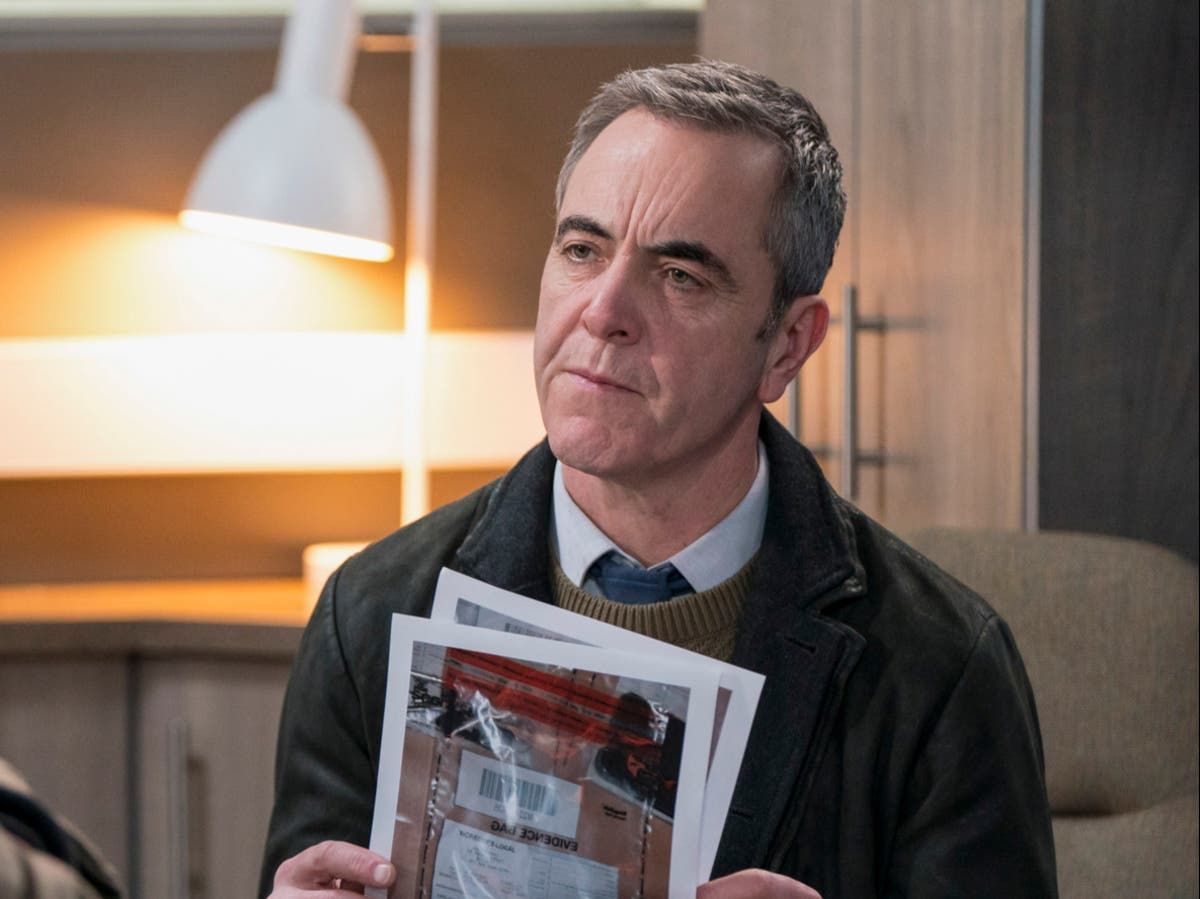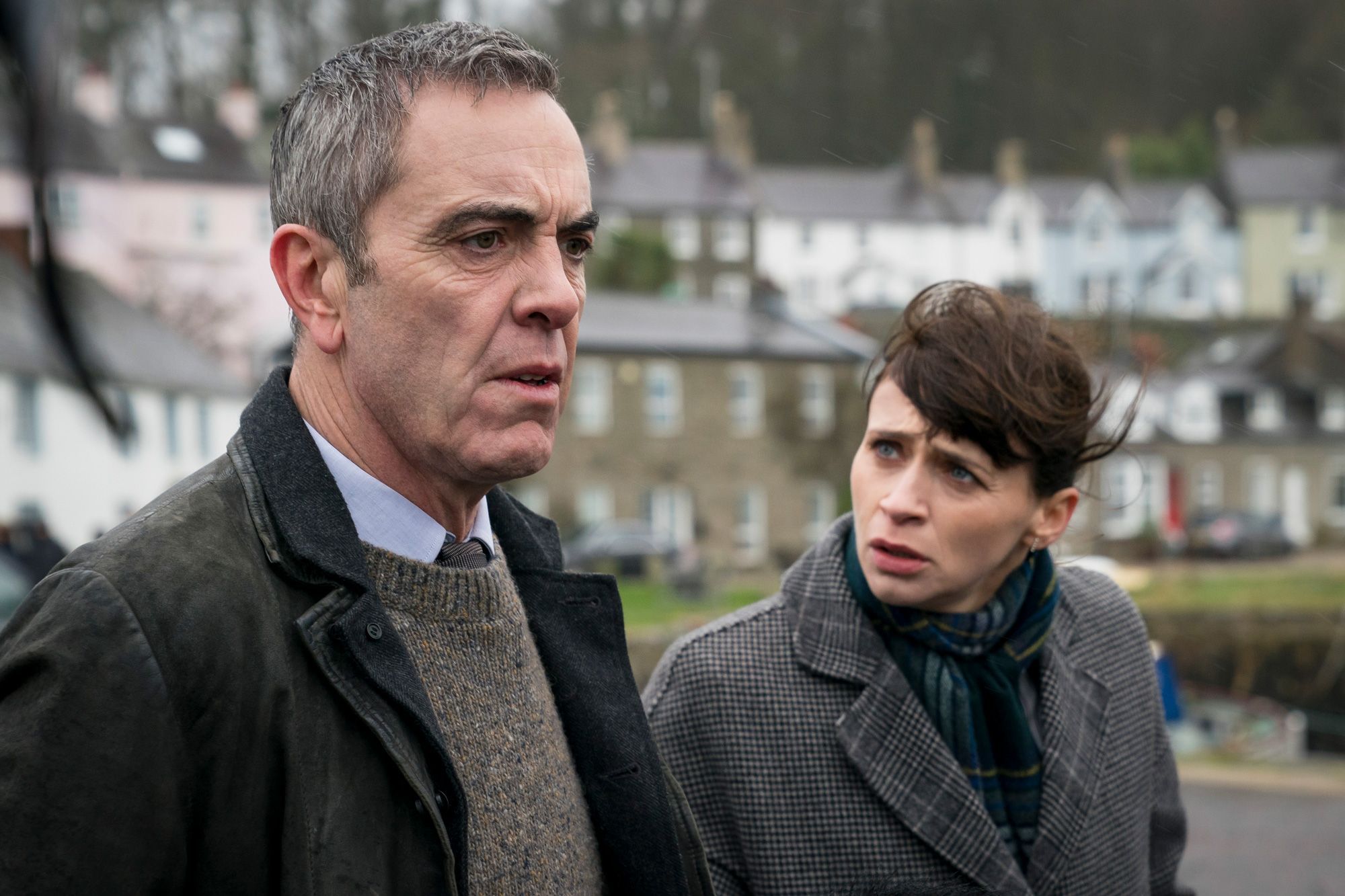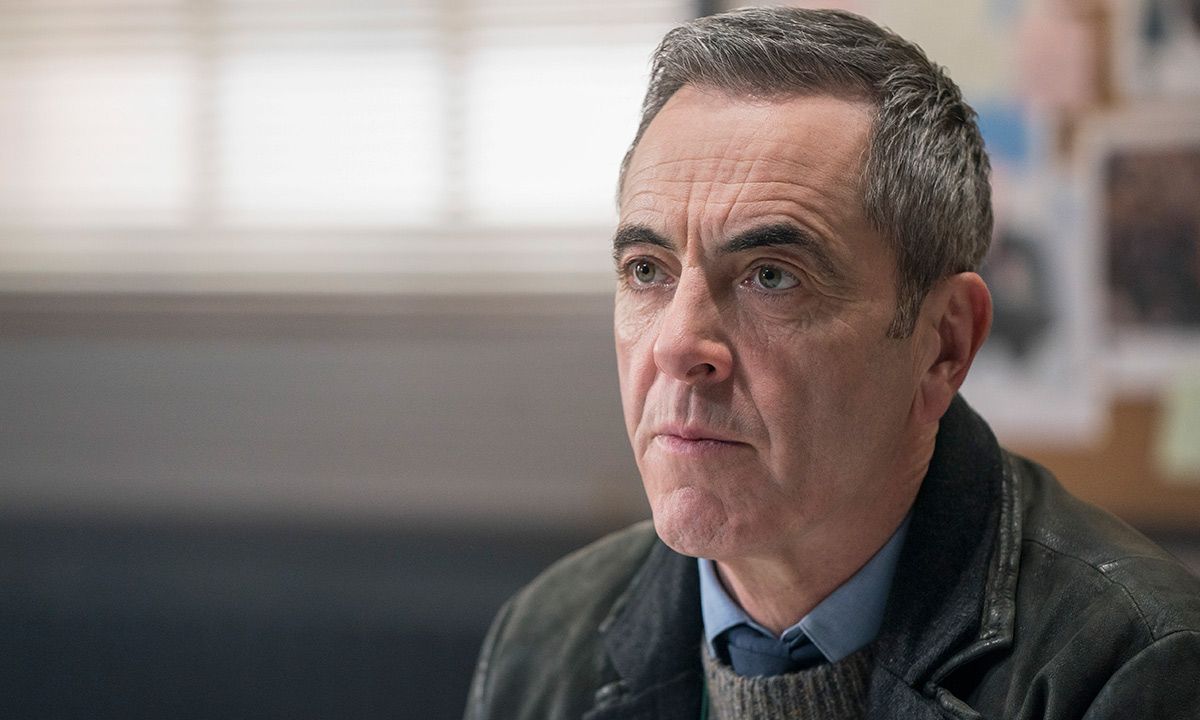Bloodlands brings the moody aesthetic of Scandinavian crime drama home to Northern Ireland, drawing on the complex and sometimes bloody history of the Troubles as the backdrop for a modern story of murder and betrayal. Following the exploits of detective Tom Brannick as he works to uncover the identity of the assassin Goliath, Bloodlands provides non-stop thrills and twists in its short, 4-episode first season.
Ahead of the US premiere of the Season 1 finale, Bloodlands writer and creator Chris Brandon talked CBR about origins of this twisting procedural, how Bloodlands differs from his previous writing and acting work and whether the US release on the Ides of March has any subtle meaning for the show.
CBR: Where did the story for Bloodlands come from, or how did it come to you?
Chris Brandon: I know that area -- I grew up in that part of Northern Ireland for the first part of my life, and so I was back there, just starting to write scripts -- to get an agent and things like that --and I was back in that area. And I had the idea, I just thought it was a really sort of cinematic area, the light and the landscape is amazing. I thought it'd be a good place for a thriller. And at the time, I was massively into True Detective and the Scandinavian crime stuff. So I thought, y'know, why not here in Northern Ireland? So that's where that came from.
Is there a character in the show that is most like you or that you're most drawn to?
Nobody that's most like me. I would say that Niamh McGovern is probably me as the writer going "okay, so how do I figure this out?" But otherwise, no. I enjoy characters that are as far away from me as possible, I think.
Is that more fun to write?
Yeah, more fun to write, and less...I don't know, when you write something close to yourself, maybe it's a bit more boring. Do you know what I mean? I think you want the escapism. When I write, I want the escapism, I think. So yeah, it's nice to create people who are certainly a lot more dynamic than me.
Was your process impacted at all by the pandemic?
So we finished shooting three days or four days before there was a national lockdown in the UK. So we were very, very lucky in that sense. And I suppose where it affected us is that our post production -- so our edits and things like that -- took longer because it was all over Zoom. It was still a fairly unimpeded process, and I think that's down to the excellent work of the editors and the director and the other producers.
Did you write the whole thing as one large story that you then had to break up into four parts or did you have this sort of episodic idea as you were writing it?
It was always going to be an episodic idea. So I wrote the spec script and it had put that around the place to show people I could write something like that. So it was a calling card, if anything else. And then when Jed [Mercurio, executive producer,] picked it up, because he knew Northern Ireland, he was suddenly very able to see that project being made, which was fantastic.
In my head, it was always episodic. I think I had started off thinking it was eight episodes, and then it had gone to six. And just in talking to the BBC about what the story would be, I think that's when we sort of settled on four. So yeah, it was always going to be episodic. And I was always going to have sort of hooks and cliffhangers at the end of episodes and things like that. I enjoy that format and storytelling. It's a fun way to do things.
I think it fully plays. I feel like I thought the story was something different at the end of each episode.
Oh good. That's good. Yeah, that's what we're aiming for.
And so on that note, congratulations on getting renewed for a second season.
Thank you.
Do you have ideas of where the story is going? Did you have ideas of where it could go before it even got renewed?
Yeah, absolutely. I mean, lots of ideas. So I think now that the challenge is to focus those ideas down, to boil them down to what the essence of them is and find what the real backbone to the new story is going to be. But it's definitely going to be a continuation of James Nesbitt's fantastic performance and Tom Brannick's character and the characters around him, which would be great.
He's a very complex character, I'd be interested to see that.
Very complex and enthralling, I think, to write as well. He's a very deep well.
How does Bloodlands differ from other things that you've written? How did it feel different writing it?
Well, it's a lot bigger project than anything I've worked on before. I've done a few episodes of an Irish police procedural soap called Red Rock, which is about the Garda Síochána in Dublin. That was a very different challenge, in essence, because the story is being set up by another writer, so you're adapting to the way they do things.
And then I have written short films here and there. One probably that involves police, which is set in Australia. And so this one, because there's more of it, there's just more depth you can you can sort of plumb and get into. In a sense, it's a far more epic storyline you're dealing with, but it's a great challenge to get into. By that stage I was really ready to sink my teeth into it.
You've also done some acting, is that right?
I have, yeah.
So how does how does writing and being behind the story compare to being in front of the camera for you?
I think I prefer it. Well, I do prefer it. How does it compare? I'm less self conscious. As a writer, I think I was a quite a self conscious actor, certainly in camera. As a writer, I think I'm probably quite -- I like being in my head a bit. So it's nice to sort of be able to journey around in my head and get that down on paper, there's a nice sort of almost therapeutic quality to that.
Whereas as an actor, you need to be much more in the present and on your marks. Which is also a great thing to do. I mean, both are great in their own right. But I think in writing, I have found something that I can feel a longer, richer vein than ever I felt in acting -- more satisfying.
Writing as catharsis, maybe?
Yeah, exactly. I mean, not to say that acting is not catharsis, because it can be. But writing is definitely a more all-encompassing use of sink-yourself. For me, I sort of sink myself more into that world, which is great.
I know that the North Ireland setting was important to you, but how important was the history related to the Troubles for the story that you wanted to tell?
Yeah, it's important. First and foremost, it was important that I tell the story with universal themes. I've been watching Ozark and I've really enjoyed Ozark -- I know nothing about the Ozarks, I've never been there. But you're completely immersed in that world. And without having seen Ozark when I was writing this, I wanted to be able to pick a world that was very vivid and use that vividness, use the reality of it, while also being able to tell stories with very universal themes.
I think in a funny way, the more specific you can be about a place, the more people believe the sort of universality of that story. Which is really interesting, because you'd sort of think the opposite would be true --you'd think to tell a universal story, you needed tell something that was incredibly vague. But actually, I think the more believable it is, and the more specific it is -- and in this case, the more specific to Northern Ireland and the experiences of Northern Ireland -- the more people buy the stakes of the drama.
That's incredibly interesting. So you think you think the specific Northern Irish history of the Troubles is something that will still resonate with American audiences?
Yeah, I think so. Many people, understandably, are not aware the details of that 30 year period of the Troubles and I think by using it as the sort of tapestry onto which, or foundation onto which you build the drama, that there's sort of something you can shine a light on, which is interesting, at the same time as you're telling very human drama.
How did you land on the iconography of the Owl of Athena for Izzy's necklace? Does it have any significance to you as a writer?
Significance to me personally? No, but I do like to sneak in little bits of classics here and there. So Athena's owl felt very appropriate in that circumstance -- that kind of all-seeing emblem of truth is a great thing to just creep in there.
But that's like all these things, you know. I've always been a bit of a geek for real detail, when somebody has something that is completely unthinking. I mean, I'll often go into IMDb and look at the trivia to see how good the trivia is. And when somebody has put the thought into a tiny detail, I find it really rewarding. It just makes it all the richer. And a lot of that is down to the excellent work of the props and the effects team who build these fantastic things and made them.
So with your eye for trivia, should we read anything into the US premiere on Acorn happening on the Ides of March?
Well, you never know... No, that was not intentional, but it's great.
Were you involved much in the development of the visual style and aesthetic of the series?
I was very lucky in that Jed, who's the executive producer who runs Hat Trick Mercurio, as well, with Jimmy Mulville, he was very encouraging on me being involved in more of the process than a writer would traditionally be -- certainly in this country. So it was great, I was definitely involved in a lot of the meetings where we talked about the look of things and how it was going to look.
A lot of that is credit as well to Pete Travis, the director who found a really great visual style and visual tone, and Árni Filippusson who's a fantastic director of photography. He's Icelandic and I think he brings that sort of Scandinavian sensibility to how it looks. You can make a cold, wet place look absolutely fantastic, which is a great talent.
Is there anything you really want to make sure viewers are taking away from watching this?
Hopefully, they're just enjoying it, and they're coming out the other side, maybe, with some insight into into the difficulties faced by that struggle between the dichotomy between being able to attain peace and being able to attain justice in a situation that is akin to Northern Ireland, if not specifically Northern Ireland.
Is there any favorite moment or scene in the upcoming season finale that you want to tease, if you're able to?
Favorite moment or scene... Oh, that's a good question. I'm now just mentally scrolling through the episode. I do have a favorite moment, yes. It's towards the end...I mean, how much am I allowed to ruin this?
I think it comes out in the US on Monday.
Okay. Well, I would say, for some reason, I really enjoy... There is a closing interview with Tom Brannick, or James Nesbit's character, and I just think his composure is chillingly brilliant. That's...I'll say that without ruining anything.
There's a moment in that finale where Izzy tells Brannick to go after Tori...
Yeah, that misunderstanding is enjoyable as well. I like it when people are talking cross-purposes, it's great.
Bloodlands stars James Nesbitt, Charlene McKenna, Lorcan Cranitch, Lisa Dwan and Lola Petticrew. The Season 1 Finale airs Monday, April 5 on Acorn TV.




